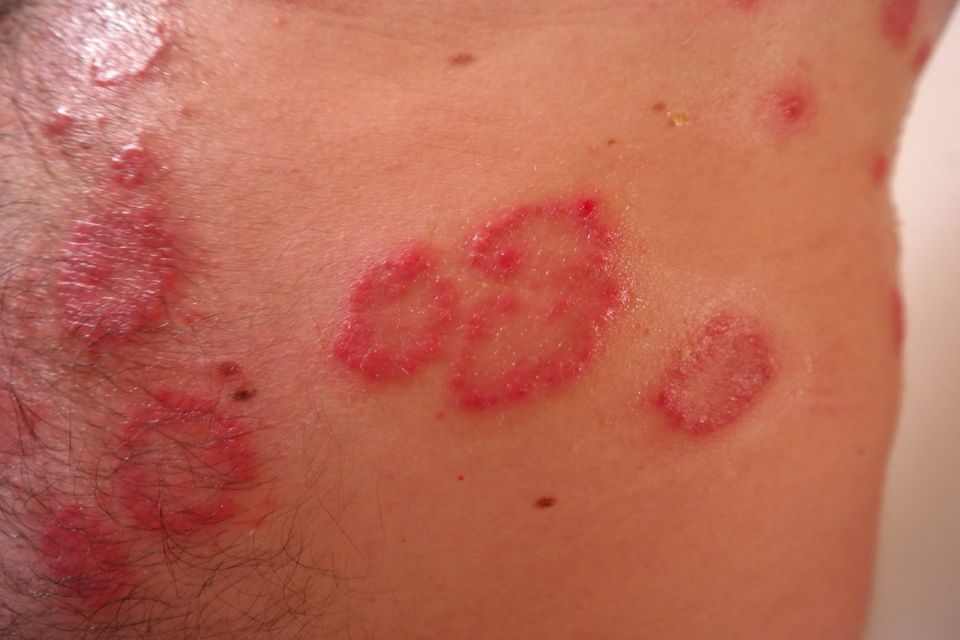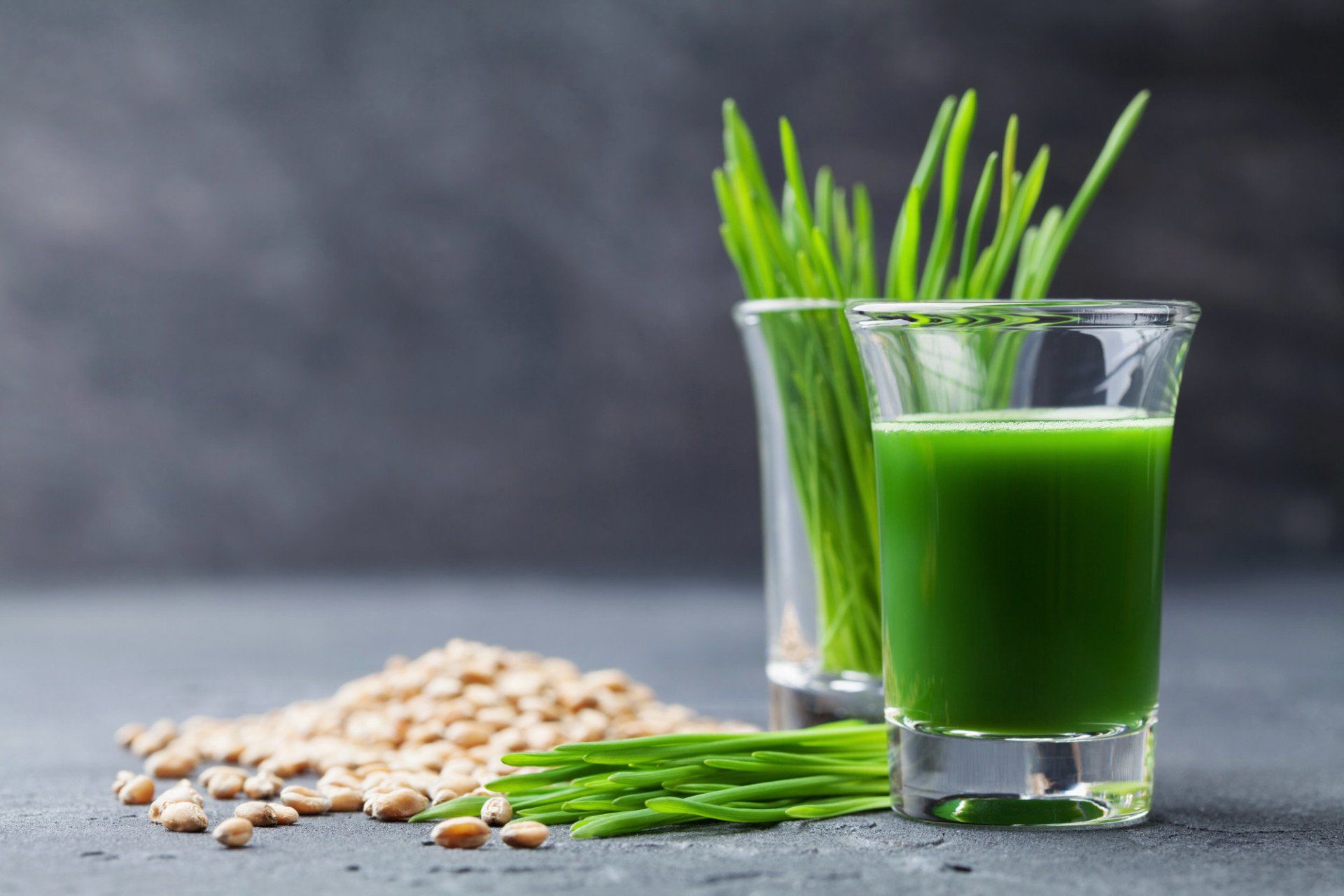What Grass? Wheatgrass!: How Wheatgrass Can Help With Psoriasis
Wheatgrass Canada
Want red, inflamed, flaky skin? We thought not. If you're ready to kick chronic psoriasis for good, it's time you tried a natural, effective remedy.
To learn about how wheatgrass is helping psoriasis sufferers kick those itchy red patches for good, read on!
What Is Psoriasis?
Psoriasis is a skin condition that can affect people of any age. It affects women and men at about the same rate. The symptoms are thickened skin, itchiness, and flaking of skin.
Doctors think it is the result of the body's immune system confusing the skin with a pathogen, and attacking it, affecting its normal functioning. Around 5% of people who have psoriasis will get joint pain and potentially joint inflammation, also known as ' psoriatic arthritis '.
Did I 'Catch It' from Someone Else?
Psoriasis is non-contagious. The condition speeds up skin cell reproduction, resulting in red and dry patches of skin that are thick and scaly to the touch. It can often be seen at the knees, ears, scalp, and elbows of sufferers.
It's a chronic skin condition, with flare-ups and periods of remission common. Sufferers report that when the weather warms up symptoms often calm. This may have something to do with increased sunlight exposure having an impact.
The patches can be painful and are often a source of embarrassment for sufferers. If you have it, you're sure to be an expert by now in ways to cover it up to avoid peoples questions about what it is and whether they can catch it.
What Causes It?
We don't know exactly what causes psoriasis. It is likely caused by a combination of factors, like genetics, the environment, and even diet. There has been lots of research on the disease during the past three decades but scientists still can't tell us the exact cause.
While some people confuse psoriasis with dermatitis or eczema, it's an entirely different skin condition. Most sufferers first found they had psoriasis between the ages of 10 and 40. It often starts with a small patch that might clear up after a few months, and in some cases gets bigger and more severe.
There seems to be a link to the immune system since it presents like other autoimmune diseases. When diet, environment, and genetics are all at play, it's hard for medical trials to separate out causes since there are so many individual differences in each case.
With scientific methods and digital analysis getting more powerful by the day, there is hope for sufferers that a cure might be with us soon. In the meantime, sufferers need to look for temporary remedies. Let's look at some of the medical and alternative therapies out there.
What Treatments Are Available?
There are several drugs on the market to treat psoriasis but none work across the board. It can be an exhausting process for sufferers to try medication after medication and still not see much improvement.
Worst of all, the mix of chemicals in medication can mean that even without any change to psoriasis, patients get side effects of the medication affecting them in other ways. Leaving them with more pain and no gain, effectively.
Every time a prescribed medication fails, it means another trip to the doctor. Which, in turn, means more medical bills to pay for. And more time off work to get to the appointment!
Sufferers of psoriasis may also have tried alternative medications and a diet change. These can see some improvements in the condition, and an overall improvement in health and wellbeing. An alternative supplement increasing in popularity is wheatgrass.
Wheatgrass as an Alternative Treatment
The use of wheatgrass to treat psoriasis can get some impressive results. Patients see a reduction in the inflammation, flakiness, and itching of the condition, with zero side effects for most. The trick is to apply wheatgrass over the most severely affected areas of the skin, on every other day.
How It Works
Wheatgrass spray has an immunomodulatory effect on psoriasis. By applying it topically to the skin every other day, it improves the skin's defence against the disease. Over time, improvement is seen in most cases. You can also take wheatgrass orally in the form of daily shots.
This way it's acting outside-in and inside-out for quicker results. How does it work? it seems to improve immune function, helping the body to fight the infection. Itchy symptoms decrease first, followed by lessening of redness and finally the thinning of hardened plaque-skin.
After applying over several months, lesions can reduce in size and even fade entirely. As the condition reduces, patients can start to reduce the amount of topical application.
How Long to Use Wheatgrass
Treatment is best for a period of six to twelve months. This is the time period necessary to see the best results in psoriasis improvements. Some sufferers have had the disease for 10 or 20 years, and never thought they'd see a solution that actually works for them.
Are There Any Risks?
Wheatgrass is a natural product so it does not present the sort of side effects common in prescription medication. Being allergic to it is about the only way you're likely to see any side effects!
You can test on a tiny patch of skin to check for reactions before you start to apply it more generously and regularly.
Does It Work on Other Conditions?
Wheatgrass has healing powers visible in its application to burns, wounds, fractures and other skin conditions.
Even steroid-dependent eczema and molluscum contagiosum show results from its regular application.
Ready to Try Wheatgrass?
If you want to try wheatgrass , look for a professional retailer with a high-quality product. That way you'll see the best results, and more quickly. Dr. Wheatgrass ships to Canada and the U.S. and is natural-extracted, fresh-grown wheatgrass for real results.
Stop taking medications that don't make a difference on your psoriasis. It's time to try something new. Have a look at the products page of our website to find the perfect treatment for your psoriasis today!


